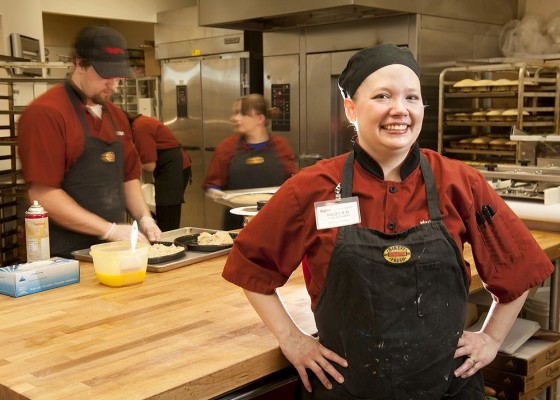When she took a buyout from her well-paying job as an office manager in 2009, Karen Jim thought she was making the best financial choice available.
Instead, the move ended up putting her on a path to financial ruin. She lost her apartment and her car, and ended up declaring bankruptcy.
“I made a huge mistake,” she wrote in an e-mail.
But nearly four years later, Jim, now 50, also sees the positive side to leaving the security of a job that paid nearly $30 an hour and offered fantastic benefits. It was only after she had stopped working 60 hours a week that she met a man she refers to as “the love of my life.”
“I didn’t have a life – my work was my life – so had I not taken this road that I did, I don’t think I would have met this man,” she said in a recent interview.
Few people can say they've never made a bad career move or screwed up at work. That's probably why many people could sympathize with fired local TV anchor A.J. Clemente, who lost his job after making the mistake of swearing on air during his first broadcast as the new weekend news anchor.
The recession, weak recovery and tough job market have been particularly unforgiving to anyone who made a career blunder and then had to put the pieces back together, however.
“The hard part about a slack labor market is you really can’t afford to make a mistake,” said Diane Swonk, chief economist with Mesirow Financial. “It’s the flip side of the coin of the late 1990s, where if you had a pulse you got a job.”
Many who have made career mistakes say that it is devastating to realize you’ve made the wrong move, and extremely difficult to find your footing again. But nearly six years into this economic slump, some say that in retrospect they don’t necessarily regret the decisions they’ve made, despite the difficulties.
Finding passion after racking up debt
Angela Hubert accumulated around $32,000 in student loan debt pursuing what she thought was her goal of becoming a doctor. It was only after she stumbled into a job decorating cakes that she realized that her future was in frosting, not fixing bodies.
“I’ve discovered that’s where my passion is,” she said.
Hubert, 32, actually wanted to be an artist from the time she was six years old. But she said her dad, a farmer, encouraged her to consider a more stable and lucrative career. She changed her focus to math and science, did well in school and was the first in her family to graduate from college.
To help pay for her education, she took a job at a big-box retailer and ended up decorating cakes. She loved that -- and hated the stress of an internship she did in family medicine.
Meanwhile, the Columbia, Mo., resident had worked her way up to a management position with the big-box retailer. Late last year, she decided to give that up as well, to go back to only decorating cakes with a smaller retailer.
She regrets the time and money she spent pursuing medicine instead of the culinary arts, and she said not having any formal culinary training could limit her career potential.
It’s also a decision she said her father doesn’t completely understand. But Hubert, who is married and has a two-year-old son, said her husband has been completely supportive.
“When I said I decided to go and be a cake decorator, he said, ‘Well, it’s about time,’” Hubert said. “The stress level in the household just completely disappeared.”
‘I don’t think you can have them both’
Karen Jim still has plenty of financial stress left from the years since she left her office manager job because she believed she would be laid off.
It took her about nine months to find a $9-an-hour hostess job. She then got another job with a construction company, which paid $15 an hour, but she said she had to give that up after suffering complications related to thyroid cancer. She spent another year unemployed, racked up $50,000 in medical debt, and lost everything.
It was a steep fall for a woman accustomed to a stable life that included several vacations a year.
But in that time, Jim also met and moved in with the man she loves.
“I wish I hadn’t taken the buyout and still had met (him), but I don’t think you can have them both,” she said.
Jim, who lives in Mesa, Ariz., recently started a new job as an administrative assistant with the state of Arizona. It pays about $14 an hour, but she’s hoping it will help her rebuild some of what she has lost.
“I have absolutely nothing that I can call my own, and that’s really hard for me,” she said.
Swonk, the economist, said that in a difficult economy many people will be forced to take jobs they don’t like, and that don’t pay well, just to get through.
But she said that’s not necessarily a bad thing, if the job provides a paycheck and teaches you other skills – including what you don’t want to do with the rest of your life. It’s also not bad to make a career mistake, and learn from it.
You shouldn’t stay in a job you hate forever, she said. You can greatly diminish your earnings power if you stick with a field you don’t like, and therefore aren’t as ambitious or successful in it.
“You don’t want to switch jobs in a bad economy, but once the economy improves you should be willing to experiment,” she said.
